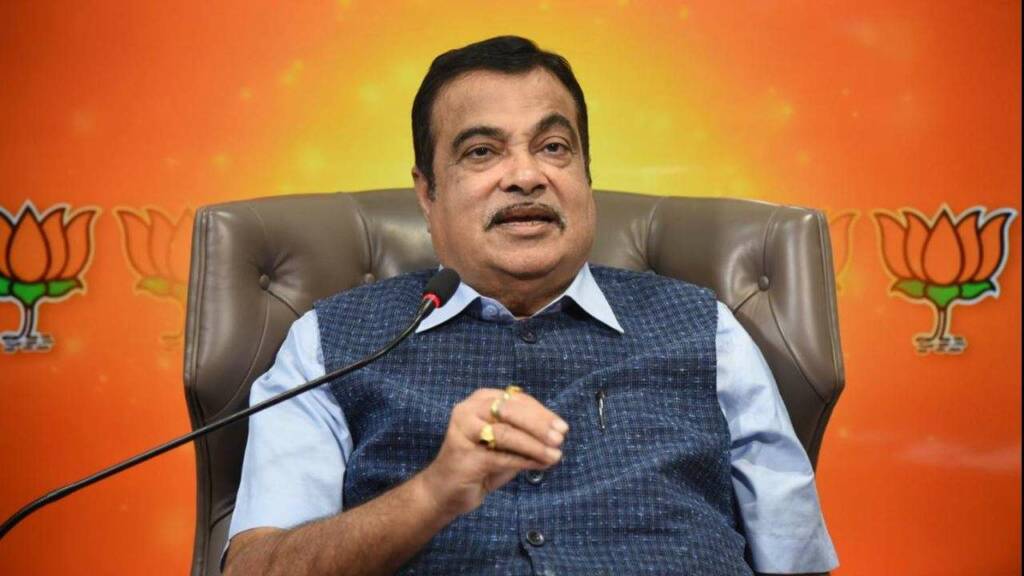For decades, infrastructure creation was seen as a luxury in India. Just like the leftist establishment argues about the requirement of a bullet train in India when millions live Below Poverty Line (BPL), in the 1990s they questioned the need to spend billions of dollars on highways and airports when millions live impoverished. However, the trend changed widely in 2014, when PM Narendra Modi took charge and Nitin Gadkari became the Minister of Road Transport and Highways.
The last NDA government, led by Prime Minister Atal Bihari Vajpayee, started two ambitious infrastructure development programs – Golden Quadrilateral Network and Pradhan Mantri Gram Sadak Yojna (PMGSY). Under these, thousands of kilometres of roads were built to connect major cities and improve the connectivity to villages. But, once UPA, supported by the Communist and Socialist parties, came to power, the investment in infrastructure came down once again because the large budget for inefficient welfare programs like MGNREGA left little room for infrastructure development. So, the ten years of UPA simply went in vain.
However, the Modi government, which came to power in 2014 on the promise of development, has focused heavily on infrastructure building in the last seven years. And, the person leading the infrastructure building spree is Nitin Gadkari, who pioneered the public-private partnership (PPP) model for infrastructure building when he was a minister in the Maharashtra government in the mid-1990s.
For the last seven years, Nitin Gadkari continues to be among the most abled ministers of the Modi government. Under his leadership, the Ministry of Road Transport and Highways has built 13,394 Km of highways in FY 21. “Tremendous progress has been achieved in building national highways across the country… We have achieved a road-building pace of 37 km of highways a day,” Gadkari said.
He said that these “achievements are unprecedented and have no parallel in any other country in the world”.
The central government’s spending on infrastructure increased exponentially under PM Modi. In the first year, the government allotted only 1.81 lakh crore rupees for infrastructure but this increased to 5.97 lakh crore rupees in 2018-19. The spending increased by more than triple with total spending of 19.36 lakh crore rupees in the first five years. In the 2019 general manifesto, BJP promised to spend 144 lakh crore rupees on infrastructure in the next five years, and even in its second term, Nitin Gadkari is leading the infrastructure development drive.
Gadkari has promised that road infrastructure in India will be comparable to the United States and Europe by 2024. “When Modiji asked me which ministry I wanted, I had asked for Roads ministry. He had asked me to remember that Roads ministry didn’t feature in the top five performing ministries at that time. But I told him, I didn’t want any of the top five ministries, I wanted Roads because I felt I could do a good job here. Today I felt like sharing this,” said Nitin Gadkari, attending an event to celebrate the achievement made by India in the road transportation sector.
A Man of ideas and optimism – Nitin Gadkari often said that India should capitalise on the global hatred against China. “Hatred for China. Is it possible for us to convert it into an opportunity for India?” asked Gadkari. Referring to the package announced by China for the Japanese companies moving factories out of the Communist country and said, “I feel that we should think on that and we will concentrate on it. We will open the Indian scenario for that. We will give the clearances and everything to them and attract foreign investment.”
Also, during the Galwan valley standoff, he was among the first ministers to ban Chinese investment in the road transport sector. “We will not give permission to joint ventures that have Chinese partners for road construction. We have taken a firm stand that if they (Chinese companies) come via a joint venture in our country, we will not allow it,” Gadkari told PTI in an interview.
Connectivity is essential for the economic growth of any country and the huge investment made by the Modi government for the highways is set to help the country achieve the target of double-digit economic growth. Surely, the person who shall be credited as India’s ‘builder-in-chief’ is Nitin Gadkari.
